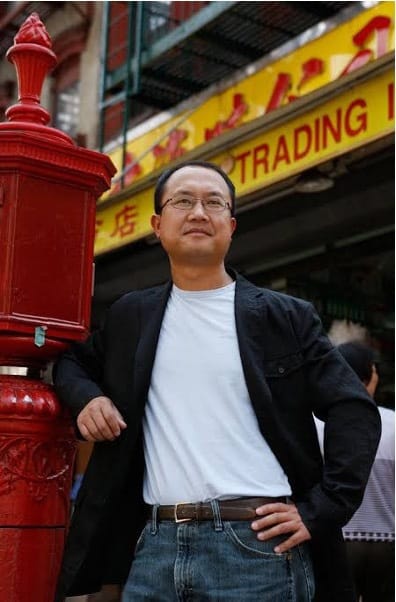Last year, The University of Alabama sent more than 1,000 students on study abroad programs around the world. Some of those students went on adventures for only the summer, some for a semester and some preferred even longer – an entire academic year or more.
Brian Kraus was one of those students. He spent his sophomore year in Chengdu, China.
Kraus, a junior majoring in physics and math, always planned to study abroad, but said he had no idea how long he wanted.
“I thought I would go for a semester or maybe a summer or something but found that I could do way more than that, and I wanted more,” he said.
Because he studied abroad in China for a year and then did a summer internship in Moldova, Kraus was out of the country for a year and half. He said he feels like he was out of the country longer than his time at the University, even though his time at the University outweighs his time overseas. He recommends going abroad for a full academic year.
“The first semester you learn some of the basics, and then the second semester you are able to get so much more involved,” Kraus said. “For example, my first semester I was there I was in a dorm with other American students, which was fine. We had fun, and we met a lot of Chinese students. But the second semester I lived with some Chinese friends I had met. If I hadn’t gone for two semesters, I never would have been able to do that.”
Because each student is different, the UA Study Abroad office does not recommend one way of studying over another.
“I think that students have different goals and ideas about what they want to gain from a study, service-learning or internship abroad,” said Amy Linden, study abroad advisor for the Study Abroad office. “If a student is able to go abroad for an entire academic year and the program suits academic and personal goals, then the long-term program can be very beneficial. However, for students who are only able to go abroad on a short-term program, there is still a great deal that can be gained from the experience.”
Jessie O’Brien, a junior majoring in restaurant and hotel management, got a taste of studying abroad through a shorter six-week program with the University and decided to go for a full semester afterward. O’Brien studied abroad in Italy for six weeks in the summer of 2012 and is currently in Australia.
“When I went to Italy, I thought that would be it,” she said. “Just a one-semester summer program, but my parents said I needed to [go for a full semester].”
O’Brien is glad that she listened and is thankful for parents who supported her being away from home.
“My dad is from Chicago, and right after college he went to Ireland for a year and traveled all in Europe, and he wanted that for me,” she said. “And my mom didn’t get to do that, and she wanted that for me. I got really blessed that I got parents that were like, ‘Jessie, go.’ This one in Australia, I got much more out of it. I am really on my own and making a life.”
Kraus said although his parents supported him studying abroad for a year, they worried about him, and even though he is used to being away from home, it was still hard to be so far away at times.
“I especially missed [my parents] after I decided to spend my Christmas break in China, too,” he said. “To me, it’s easier to be apart from them since I’m an out-of-state student and rarely go home anyway.”
However, Kraus said he could understand how that would be harder for some students who are used to making the trip home more frequently. He still encourages students not to rule out studying abroad, though.
“If your family isn’t open to you studying abroad and you’re still interested in going, it may help to explain details of the program you intend to go through,” he said. “The more they’re involved in learning about your trip, the better they’ll feel about it.”
If money is a concern, Kraus and O’Brien encourage other students to weigh their options before deciding studying abroad is not an option. Kraus said he was able to apply his National Merit scholarship to his program in China, and O’Brien was able to get a scholarship through her program in Australia.
“It’s really expensive, and I know that a lot of people don’t have that opportunity,” O’Brien said. “But I know a friend who is studying abroad now and got loans, and he has some kind of scholarship with Alabama and was able to use some of that for the program. There really are ways to make it happen. I think if you really want it, you can make it happen.”
Because an experience abroad can be so different from a typical class schedule at the University, returning to school can be challenging for students.
“Coming back to UA was really wonderful in some ways and challenging in others,” Kraus said. “I was so glad to have my stable group of friends back, and I loved having a ‘home’ again. However, academic readjustment was hard, seeing as I hadn’t had a math or science course in the whole year I was gone.”
Kraus said being present at the University for four years has benefits as well.
“I definitely am jealous of some students for the full four years they have at Alabama,” he said. “I still feel like a stranger sometimes in the South and having an extra continuous year to get more involved might have opened up my social circles even more, and I probably could’ve been more involved in different campus groups. It also took a long time before I felt comfortable with the deadline atmosphere of university again.”
But Kraus said he would not trade his experiences or time spent in China for any of those things.
“It is so worth it,” he said. “I think I gained a lot of the ability to make decisions more independently. You get to know another culture so well and see what you take advantage of about your own culture. I learned what motivated me, and that is something you don’t learn in class but is so necessary for the real world.”
O’Brien also said that her time spent abroad has been a worthwhile experience.
“I would say I feel like the people that I meet, and I am just by myself, literally thrown out there,” she said. “And I think you learn so much about yourself through the people that you meet and the experience that you have. What I really feel like I am learning now is the good memories I get to take back, the people I meet, the places I go and just being exposed to all these amazing things in the world, that if I was in one place, I would never even know, and that is so sad that I would have missed out on that.”






